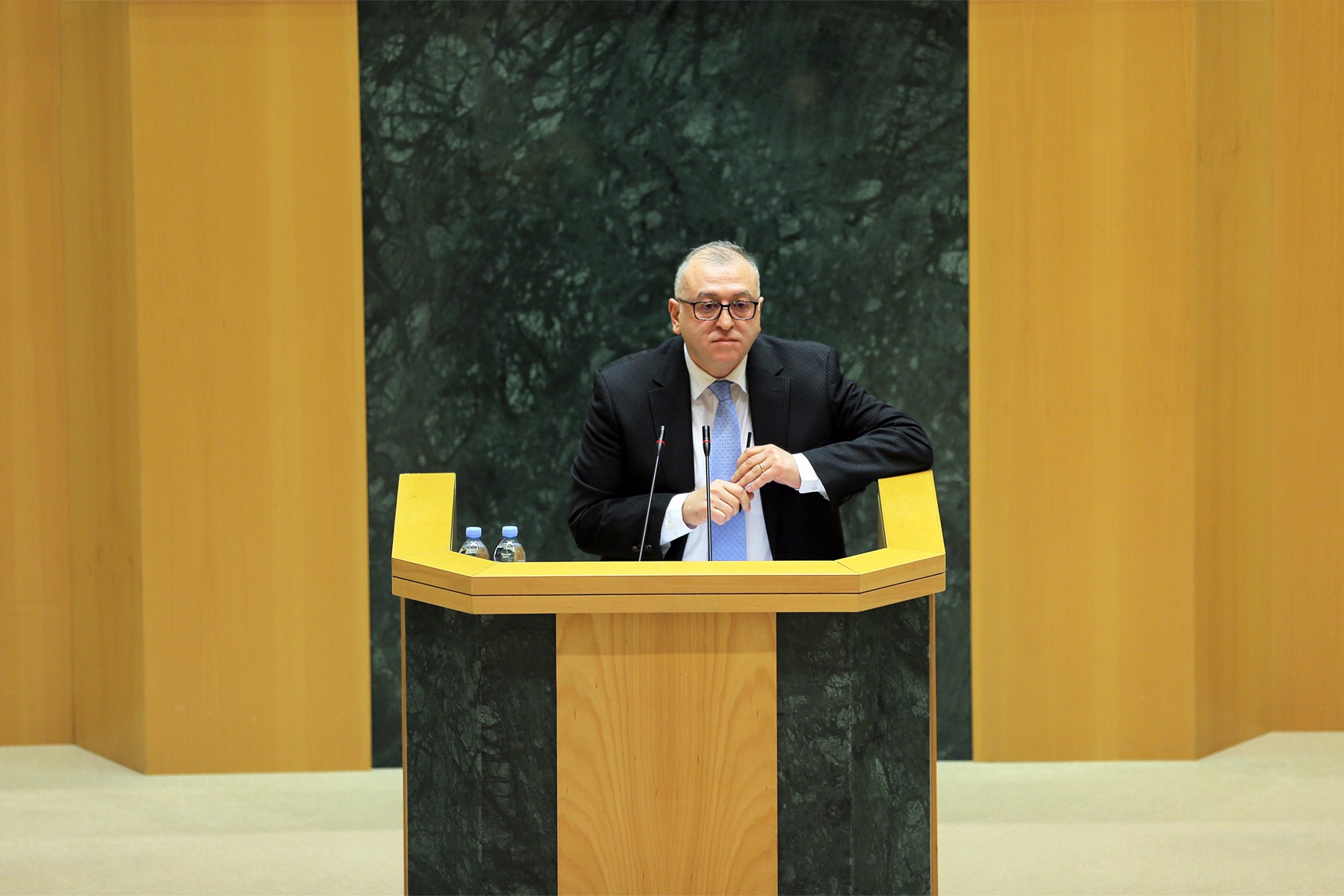
Parliament Approves NBG’s 2023-2025 Main Directions of Monetary and FX Policies
The Parliament of Georgia voted and supported the draft resolution on The Main Directions of Monetary and FX Policies for 2023-2025, which includes the target rate of inflation, key tools of monetary policy used to achieve the target inflation and potential risks. The Main Directions document was submitted to the legislative authority by the NBG Governor Koba Gvenetadze.
At the plenary session of the Parliament of Georgia, Governor Gvenetadze summarized the advantages of the inflation targeting regime. NBG Governor noted that price stability is a necessary prerequisite for high and stable long-term economic growth. To achieve price stability, the National Bank of Georgia implements monetary policy under the inflation targeting regime, recognized as the best international practice today.
"In inflation targeting, the target rate of inflation is achieved by altering the monetary policy rate (refinancing rate), the primary instrument of the NBG’s monetary policy. The decision to alter the monetary policy rate is made subsequent to the analysis of the macroeconomic environment, due consideration of the current position of financial markets, inflation forecast, and estimates of macroeconomic risks affecting inflation and inflation expectations. If the inflation forecast exceeds its target rate, the monetary policy rate will increase or remain tightened, and in contrast, if the inflation forecast falls short of the target level, the monetary policy will be moderated, that is, the monetary policy rate will decrease," said Koba Gvenetadze.
"Successive shocks in recent years have caused inflation to exceed its target level. Inflationary pressure was strong in Georgia during the pandemic, as was around the world. Worldwide restrictions disrupted supply chains and pushed production costs upward. At the same time, the world's shipping and other operational costs increased dramatically, affecting final prices on almost all types of products. Inflationary pressure was aggravated by the higher prices on general commodities on the international markets,” said Koba Gvenetadze.
Koba Gvenetadze noted that the severe geopolitical events in the world make it rather difficult to implement monetary policy. "There are risks of global recession, while austere inflationary shocks continue, having led to higher inflationary expectations. Under these circumstances, since it is important to slow down lending to reduce inflation, the National Bank of Georgia increased the refinancing rate and applied other additional tools as well," said Governor Gvenetadze.
After the 2023-2025 monetary and FX policy report, the NBG Governor thanked the Parliament for the seven years of fruitful and interesting cooperation.
